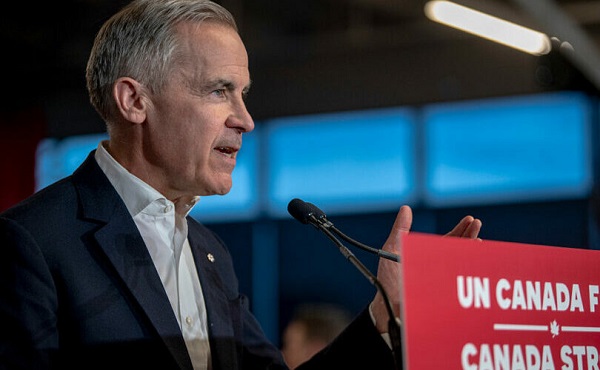Energy
DAVID BLACKMON: Norway Provides An Object Lesson On How Not To Make Energy Policy


From the Daily Caller News Foundation
By David Blackmon
“It’s an absolutely sh*t situation.” That is the assessment of Norway’s energy minister, Terje Aasland, about his country’s electricity costs rising to record levels due to its exports of power to the United Kingdom, Germany, Denmark and other European countries.
It is an outcome that many warned the Norwegian government would come about as the decisions were made to build the interconnects to export power into the European Union and the UK. Those critics were of course ignored as those in charge of Norway’s fortunes at the time felt compelled to genuflect to the demands of the EU and other globalist organizations.
Norway derives the vast majority of its electricity from hydropower, which currently provides 90% of the country’s power generation. Most of the remainder comes from wind power, and the nation enjoys a large excess of generating capacity on most days. Thus, all other factors being equal, it made some financial sense to establish those interconnects to sell the surplus into other countries.
But it only made sense when those other countries were taking care to ensure the continuing health and adequacy of their own electric grids. That certainly has not been the case in either the UK or Germany, whose governments have in recent years chosen to discard a former wealth of reliable baseload capacity provided by coal and nuclear plants in favor of relying too heavily on intermittent, weather-dependent wind and solar.
Now, when the wind stops blowing and the sun isn’t shining, those customers of Norwegian power exports drain the host country’s surplus, causing the extremely high energy costs to flow back upstream, hitting Norwegians with abnormally high utility bills. It all came to a head this week when low wind speeds, combined with abnormally cold temperatures on the European mainland, caused power rates in Norway to spike to as high as €1.12 ($1.18) per kilowatt hour (kwh).
By comparison, the average electricity rate per kwh in New York is around 22 cents, while Texans typically pay around 15 cents per kwh. What that price spike meant for Norwegians on December 12 is that taking a 5-minute warm shower would have cost them $5. Doing the same in Texas would have cost around 16 cents.
Naturally, public outrage in Norway over these needlessly high electricity rates is now causing policymakers there to run for political cover. The Financial Times reports that both the ruling leftwing Labour Party and conservative Progress Party are now making plans to campaign next year on platforms to limit or end the export of electricity via these international interconnections.
That is a prospect that no doubt sparks fear in the hearts of the central planners in both Germany and the UK, where electricity imports from Norway play a central role in their own emissions reduction plans. Those plans involve the willful destruction of reliable baseload power stations and forcing power costs to dramatically increase, which in turn results in heavy industries like steelmaking and other manufacturing to leave the country. In that way, these governments are essentially exporting their emissions to China, whose own government is only too happy to serve as home to these heavy industries and power them with the hundreds of coal-fired power plants they build each year.
California Gov. Gavin Newsom and his fellow Democrats have pursued essentially the same strategies in California in this century, with predictable results: Californians pay among the highest power rates in the United States as their power grid has become overloaded with intermittent generation and increasingly reliant on imports from other states. Rather than exporting its emissions to China, California exports them to Nevada and Utah and other U.S. states.
The Biden administration has attempted to take the entire country down this same economically ruinous path for the past four years. Fortunately, voters awakened just in time this year to head off the most damaging impacts now being seen in Germany and the UK.
For Norway, is this an example of the law of unintended consequences setting in? Sure, to some extent. But it is also a clear example of entirely foreseeable consequences stemming from poor policymaking by multiple national governments flowing across borders. This “sh*t situation” was all avoidable, and frankly should have been.
David Blackmon is an energy writer and consultant based in Texas. He spent 40 years in the oil and gas business, where he specialized in public policy and communications.
Daily Caller
AI Needs Natural Gas To Survive


From the Daily Caller News Foundation
By David Blackmon
As recent studies project a big rise in power generation demand from the big datacenters that are proliferating around the United States, the big question continues to focus in on what forms of generation will rise to meet the new demand. Most datacenters have plans to initially interconnect into local power grids, but the sheer magnitude of their energy needs threatens to outstrip the ability of grid managers to expand supply fast enough.
This hunger for more affordable, 24/7 baseload capacity is leading to a variety of proposed solutions, including President Donald Trump’s new executive orders focused on reviving the nation’s coal industry, scheduled to be signed Tuesday afternoon. But efforts to restart the permitting of new coal-fired power plants in the US will require additional policy changes, efforts which will take time and could ultimately fail. In the meantime, datacenter developers find themselves having to delay construction and completion dates until firm power supply can be secured.
Datacenters specific to AI technology require ever-increasing power loads. For instance, a single AI query can consume nearly ten times the power of a traditional internet search, and projections suggest that U.S. data center electricity consumption could double or even triple by 2030, rising from about 4-5% of total U.S. electricity today to as much as 9-12%. Globally, data centers could see usage climb from around 536 terawatt-hours (TWh) in 2025 to over 1,000 TWh by 2030. In January, a report from the American Security Project estimated that datacenters could consume about 12% of all U.S. power supply.
Obviously, the situation calls for innovative solutions. A pair of big players in the natural gas industry, Liberty Energy and Range Resources, announced on April 8 plans to diversify into the power generation business with the development of a major new natural gas power plant to be located in the Pittsburgh area. Partnering with Imperial Land Corporation (ILC), Liberty and Range will locate the major power generation plant in the Fort Cherry Development District, a Class A industrial park being developed by ILC.
“The strategic collaboration between Liberty, ILC, and Range will focus on a dedicated power generation facility tailored to meet the energy demands of data centers, industrial facilities, and other high-energy-use businesses in Pennsylvania,” the companies said in a joint release.
Plans for this new natural gas power project follows closely on the heels of the March 22 announcement for plans to transform the largest coal-fired power plant in Pennsylvania, the Homer City generating station, into a new gas-fired facility. The planned revitalized plant would house 7 natural gas turbines with a combined capacity of 4.5 GW, enough power 3 million homes.
Both the Homer City station and the Fort Cherry plant will use gas produced out of the Appalachia region’s massive Marcellus Shale formation, the most prolific gas basin in North America. But plans like these by gas companies to invest in their own products for power needs aren’t isolated to Pennsylvania.
In late January, big Permian Basin oil and gas producer Diamondback Energy told investors that it is seeking equity partners to develop a major gas-fired plan on its own acreage in the region. The facility would primarily supply electricity to data centers, which are expected to proliferate in Texas due to the AI boom, while also providing power for Diamondback’s own field operations. This dual-purpose approach could lower the company’s power costs and create a new revenue stream by selling excess electricity.
Prospects for expansion of gas generation in the U.S. received a big boost in January when GE Vernova announced plans for a $600 million expansion of its manufacturing capacity for gas turbines and other products in the U.S. GE Vernova is the main supplier of turbines for U.S. power generation needs. The company plans to build 37 gas power turbines in 2025, with a potential increase to over 70 by 2027, to meet rising energy demands.
The bottom line on these and other recent events is this: Natural gas is quickly becoming the power generation fuel of choice to feed the needs of the expanding datacenter industry through 2035, and potentially beyond. Given that reality, the smart thing to do for these and other companies in the natural gas business is to put down big bets on themselves.
David Blackmon is an energy writer and consultant based in Texas. He spent 40 years in the oil and gas business, where he specialized in public policy and communications.
Bjorn Lomborg
The stupidity of Net Zero | Bjorn Lomborg on how climate alarmism leads to economic crisis

From spiked on YouTube
Note: This interview is focused on Europe and the UK. It very much applies to Canada. The 2025 Federal Election which will see Canadians choose between a more common sense approach, and spending the next 4 years continuing down the path of pursuing “The Stupidity of Net Zero”.
European industry is in freefall, and Net Zero is to blame.
Here, climate economist Bjorn Lomborg – author of Best Things First and False Alarm – explains how panic over climate change is doing far more damage than climate change itself. Swapping cheap and dependable fossil fuels for unreliable and expensive renewables costs our economies trillions, but for little environmental gain, Lomborg says.
Plus, he tackles the myth of the ‘climate apocalypse’ and explains why there are more polar bears than ever.
Support spiked: https://www.spiked-online.com/support/
Sign up to spiked’s newsletters: https://www.spiked-online.com/newslet…
-

 2025 Federal Election2 days ago
2025 Federal Election2 days agoRCMP memo warns of Chinese interference on Canadian university campuses to affect election
-

 2025 Federal Election1 day ago
2025 Federal Election1 day agoResearchers Link China’s Intelligence and Elite Influence Arms to B.C. Government, Liberal Party, and Trudeau-Appointed Senator
-

 COVID-191 day ago
COVID-191 day agoFauci, top COVID officials have criminal referral requests filed against them in 7 states
-

 Business2 days ago
Business2 days agoScott Bessent Says Trump’s Goal Was Always To Get Trading Partners To Table After Major Pause Announcement
-

 COVID-192 days ago
COVID-192 days agoBiden Admin concealed report on earliest COVID cases from 2019
-

 2025 Federal Election1 day ago
2025 Federal Election1 day agoMark Carney vows to provide sterilizing puberty blockers to children ‘without exception’
-

 2025 Federal Election2 days ago
2025 Federal Election2 days agoThe status quo in Canadian politics isn’t sustainable for national unity
-

 Censorship Industrial Complex21 hours ago
Censorship Industrial Complex21 hours agoFormer residential school student refutes ‘genocide’ claims, recalls positive experience









